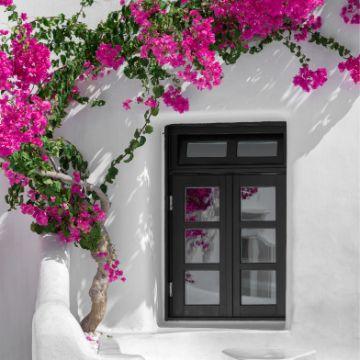An approval in principle for a French mortgage is well worth the effort: but beware of cheap imitators
To maximise any viewing trips you have planned to France, we would strongly advise you to get a firm grasp on what your realistic budget for a French bolt hole would be. If you were planning on buying in cash, then it’s worth enquiring about a French mortgage to see if your budget could be increased, or whether those cash savings could be earning you a better return in an investment vehicle compared to locking them into a French property, even taking the interest payments on a French mortgage into account. And if you were looking at taking out a French mortgage, then you want to make sure that you meet the eligibility criteria, and to understand what your maximum loan amount would be.
If it’s not an approval for a French mortgage, what is it?
Many potential buyers in France wrongly assume that they have done their homework by having an initial conversation with a French bank. The banks themselves will talk about issuing an approval in principle or a decision in principle following an initial phone conversation with a sales agent. However, the document that they produce should always be looked at as a quote, not a true approval. This is very different from the UK, where if you are then able to produce the paperwork requested you will be given a mortgage based on the approval terms they had issued. The conversation with the French bank will have been with a sales representative, not an underwriter. They will not hold professional mortgage qualifications (such as CeMap in the UK) and will not be qualified to give mortgage advice, and you will only have been quoted one bank’s rates, rather than an analysis of the whole market. More worrying, is that the banks’ own sales staff rarely know their own bank’s lending criteria well enough to give you an accurate gauge on whether your mortgage application would be successful – their approval rating is often around 50% (ours is 97%). Sadly, this means that many potential purchasers have lost out on their dream home in France because they had been relying on what they had thought was an approval from the bank, only to get a refusal 3 months later from the same bank. Infuriatingly, the reason for the refusal is often something that was clear from the start and could have been easily explained away had anyone from the bank asked the right questions or properly analysed the paperwork prior to submitting it to an underwriter. Luckily we have managed to ‘rescue’ some of these transactions but it is tricky – by approaching the bank directly and then getting a refusal 3 months later, the number of banks we can then approach is reduced (as once a bank says no, they will not change their mind) and depending on the timescales involved, can be further limited to those that can turnaround the paperwork quickly enough. Better to keep your options open and approach a qualified and experienced French mortgage broker in the first instance.
How can I tell if it’s an Approval for a French mortgage?
In France, an ‘approval’ from a bank is not worth the paper it’s written on unless you have submitted a full file of paperwork (and this isn’t just payslips and passport, but also all documents pertaining to any mortgages and other loans, all your proof of savings, tax returns, identity documents, and other income sources) and that this is analysed by an underwriter and submitted to the credit department at the bank in question. The problem with this is that many banks, when approached directly will not do this unless there is a signed sales agreement (the compromis de vente) in place. So where does this leave you on your viewing trips? You don’t want to sign a sales contract until you are assured you will be able to get a mortgage, but you can’t get that assurance from a bank until you have a signed sales contract!
A qualified, international French mortgage broker can give you the peace of mind you need to move forward
As experienced UK-based international mortgage brokers, IPF Consultants are CeMap-qualified and authorised by the FCA and ORIAS (the French equivalent). This means they are qualified to give advice on the most suitable products based on your circumstances. This is not what you get from a French bank, who will provide a quote on the product best suited to them. As there is not a re-finance market on the Continent, you have to get this right at the point of purchase, as you can’t swap products or rates later on. On top of that, we spend a lot of time with the underwriters at our French panel of lenders to ensure that we are fully conversant in their eligibility criteria and the range of products available. This means that, after an in-depth conversation with our clients and a thorough analysis of their paperwork, prior to submitting any documents to the bank we can give our clients an honest and comprehensive assessment of whether their mortgage application would be successful. Often these conversations can pre-empt any questions that the underwriters will ask and can help avoid any unexpected barriers once the paperwork is then submitted to the chosen bank. Moreover, as we have dedicated underwriters at many banks who only look after our clients, we are able to submit applications for an underwritten approval in principle without the need for a signed sales contract. This can give you, the purchaser, peace of mind and bargaining power, as you can confidently say that you have a fully reviewed and approved mortgage in principle.



